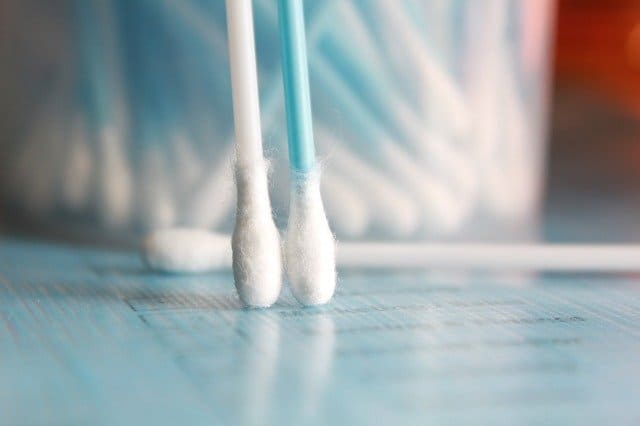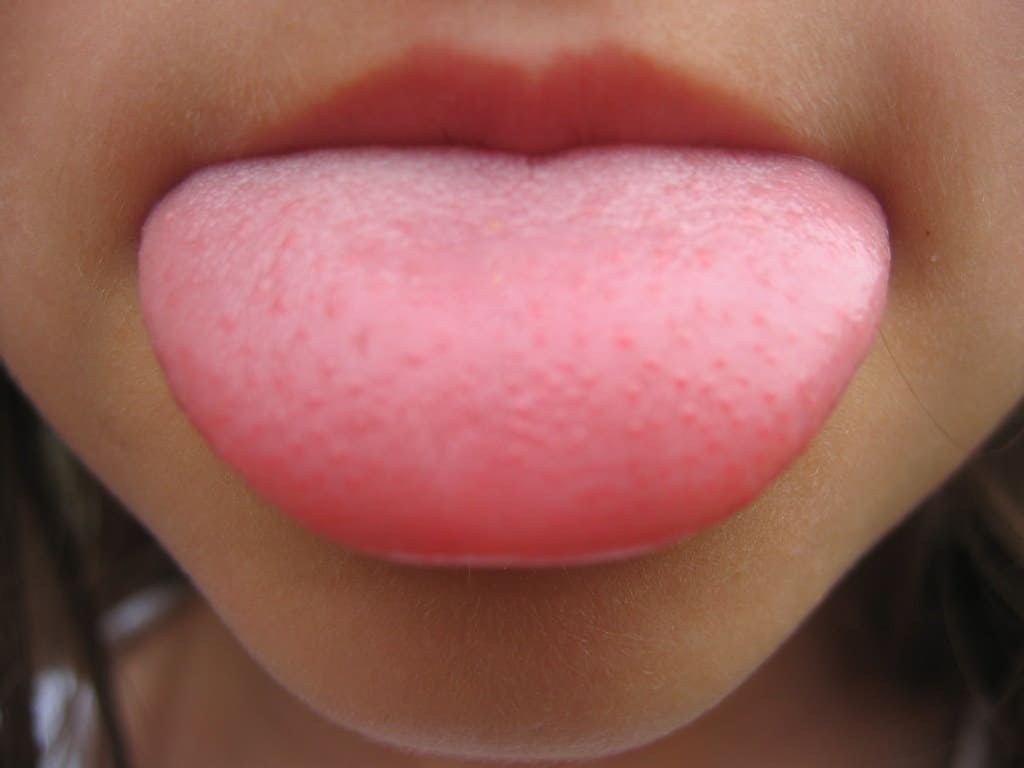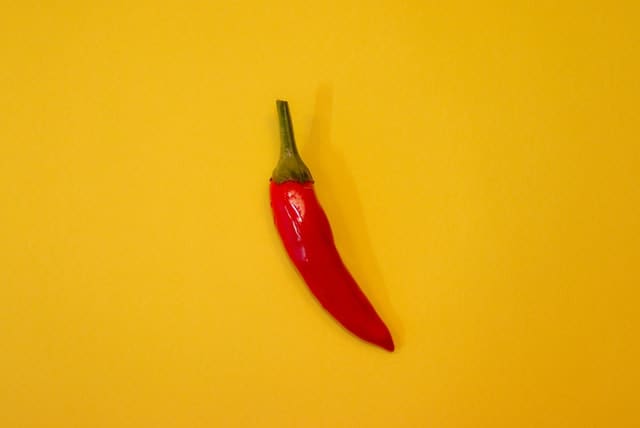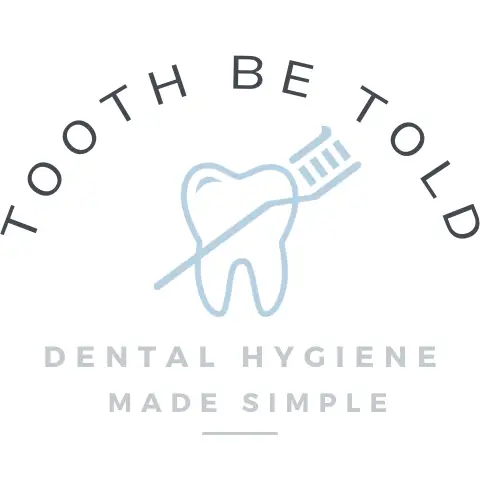
When I was younger, I had many bouts of strep throat, which led to my tonsils becoming more cryptic (meaning hollow areas) with many folds that catch bacteria and food debris. So tonsil stones are something I have personally dealt with for many years and being a dental hygienist, discussing them with my patients.
Tonsils stones can cause bad breath. Also called tonsilloliths/tonsiliths, they are small masses that are formed in the crypts/folds of the tonsils and are formed mostly of bacteria and food. They can cause bad breath, sore throat, inflammation and redness of the tonsils, and pain when swallowing.
In this post, I go over the advice I give to my own patients when the topic of tonsil stones comes up!
How to get rid of bad breath from tonsil stones
The first thing you want to do is have a full exam by your dental professional to rule out other things that could be causing bad breath.
Tonsil stones may just be one part of the problem, as gum disease and oral infections can contribute to some pretty foul smells coming from the mouth.
Read now: Stinky Breath From a Loose Tooth? Causes and Treatment
Remove the tonsil stones
Please be careful when trying to remove tonsil stones, as you could damage the tonsils and cause trauma to them and make them bleed.
Use a q-tip (cotton bud) to remove tonsil stones

You can try to remove the tonsil stones on your own by using a q-tip (cotton bud) and applying slight pressure to the area around the tonsil stone.
Use the end of a manual toothbrush to remove tonsil stones
You can also use this technique with the handle end of a manual toothbrush. Trying to dislodge it with an object can trigger the gag reflex so just be careful!
Use a Waterpik to remove tonsil stones
You can also try using an oral irrigator such as a Waterpik (you can find the Waterpik I use on my resource page , it’s close to the bottom of the page).
, it’s close to the bottom of the page).
When using the Waterpik you want to make sure that you keep the power level down, you don’t want to have the power over medium. If you have it too high it could go down the wrong way and you could choke on the water, so please be careful.
You will want to guide the stream of water at your tonsils. Again this can trigger a gag reflex and can be tricky to not choke on the water. This technique can be tricky getting used to.
Not only will this dislodge stones, but also to rinse out the tonsils to help prevent stones from forming.
Gargling to remove tonsil stones
You can try gargling with water or a salt water rinse to dislodge the stones. I go over this technique in the following section.
Cough to remove tonsil stones
The coughing motion constricts the airway and back of the throat. This motion and constriction can move the tonsil stones and dislodge them from their place within the tonsils.
The best way to get rid of tonsil stones is to prevent them in the first place! Below I go over all the ways to prevent bad breath by preventing tonsil stones.
How to prevent bad breath by preventing tonsil stones
Improve your oral health
You can reduce bad breath from tonsil stones by improving your oral health routine. Flossing daily, brushing 2 times daily for 2 minutes each time is a great way to reduce tonsil stones. But what if you are already doing this?
Clean your tongue to improve your breath

Imagine a shaggy carpet and all the wonderful things that get caught in it. Now imagine that carpet as your tongue. Bacteria, food, and dead cells all get trapped in the tongues papillae, contributing to bad breath.
Read now: How Often Should You Clean Your Tongue?
I do not recommend using mouthwash (for many reasons) however, once in a while is okay. You will want to gargle with it to help dislodge any food particles that are caught within the crypts/folds of the tonsils.
But to be honest, water will do the same. The gargling motion itself has the most impact.
And if you do want to have a therapeutic effect, salt water rinses will fair better in this sense than using mouthwash. Salt water will kill the bacteria in the mouth and promote the healing of tissue to reduce inflammation.
You need the salt water rinse to be a specific concentration to have a therapeutic effect.
You can find the recipe in the link below.
Read now: Salt Water Mouth Rinse Recipe
Have regular dental hygiene appointments
Having your teeth cleaned and having regular dental hygiene appointments will decrease the number of bacteria in the mouth and make your mouth much healthier.
We (dental hygienists) monitor your overall health and oral health and can give you advice that is completely tailored to you.
You can find out exactly what happens in a dental hygiene appointment in the link below. 🙂
Read now: How Dental Hygienists Clean Your Teeth

Why do we get tonsil stones and does everyone get them?
We get tonsil stones for several reasons. Poor oral health habits, cryptic tonsils, diet, and saliva composition/amount of mucus all affect tonsil stone formation. Mucus is very thick and sticky. Elevated amounts of mucus contribute to tonsil stones.
No, not everyone will get tonsil stones. People who have cryptic tonsils are more likely to have them, as well as people who eat foods that promote their formation. You can find out what foods cause tonsil stones below.
What are tonsil stones compounded of?
There is more to tonsil stones than just bacteria and food debris. Mucus, calcium salts, oxalates, and magnesium salts all work to calcify the bacteria/food debris as well as dead cells, forming them into hard masses that we call stones.

What foods cause tonsil stones?
How husks and hard to break down foods cause tonsil stones
Foods that have higher amounts of husks and hard parts can get trapped in the crypts of the tonsils.
The husks/harder parts are difficult to break down, such as popcorn and seeds. When particles of these things get trapped within the tonsils, they can attract more bacteria and food debris.
Picture rolling a snowball on the ground where there is snow, the more you roll it, the more snow it will pick up, and the larger it will get! This is similar to tonsil stones. Once there is something there, like a hard mass, it will continue to grow as it collects more debris.
How dairy products cause tonsil stones
There is a specific protein that is in dairy products that contributes to calcifying the food debris, bacteria, dead cells and other compounds of tonsil stones.
That protein is casein and it is found in the following foods;
- milk
- cheese
- butter
- yogurt
- cream
- ice cream
- and anything that contains these ingredients (such as custard)
Ghee does not contain casein for those who consume it and are wondering!

How hot (spicy) foods cause tonsil stones
More mucus builds up when we consume spicy foods to help to rinse the mouth out. The more mucus in the mouth/throat, the more prone to tonsil stones you will be.
How sugar causes tonsil stones
Sugar is the main food for the over 500 species of bacteria in our mouths. Because sugar promotes bacterial growth and increased mucus, the more prone to tonsil stones you will be.
How alcoholic and caffeinated beverages cause tonsil stones
Again, like spice and sugar, alcohol and caffeine increase the amount of mucus in the mouth/throat which gets trapped within the tonsil crypts.
Can tonsil stones make it hard to breathe?
Yes, tonsil stones can make it harder to breathe. Because tonsil stones can increase in size and become larger. If you have many of them, it can cause the tonsils to become inflamed and make the back of your throat more constricted. They can also cause pain when swallowing, ear pain and bad breath.
I hope that this information has served you well, and please (as a friendly reminder) see your dental professional regularly.
Have a wonderful day,
Holly 🙂

